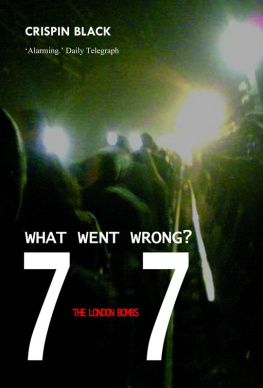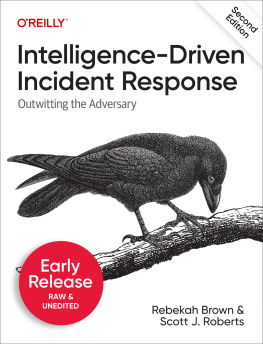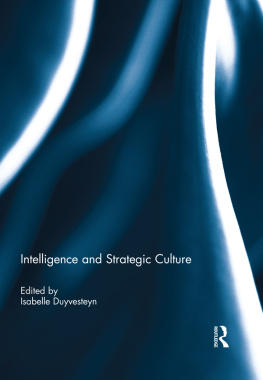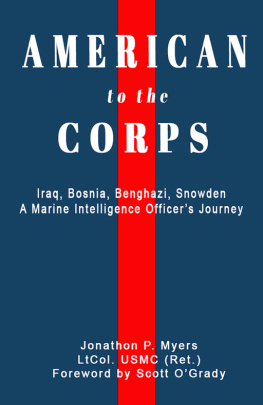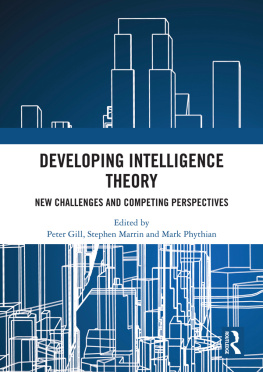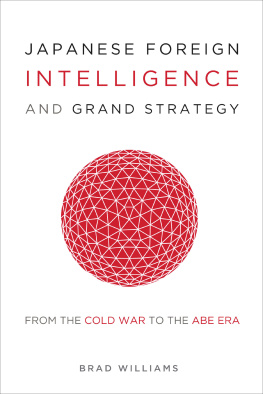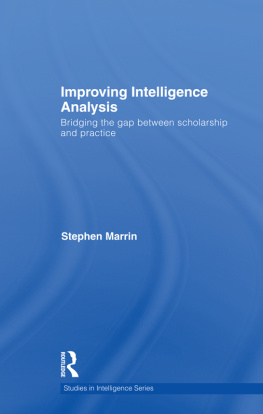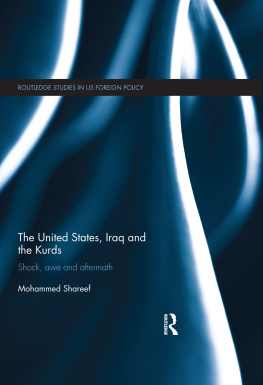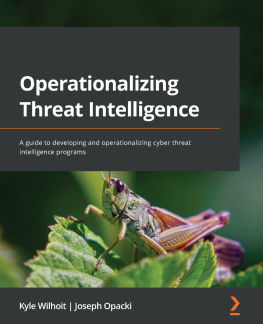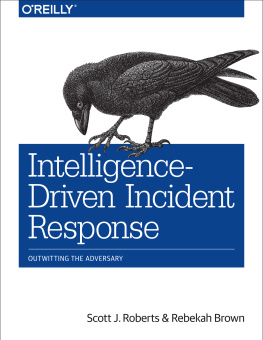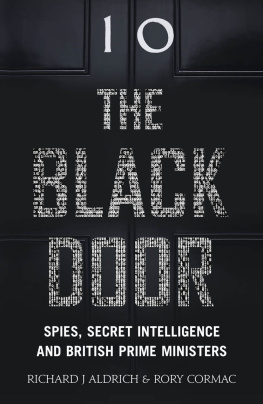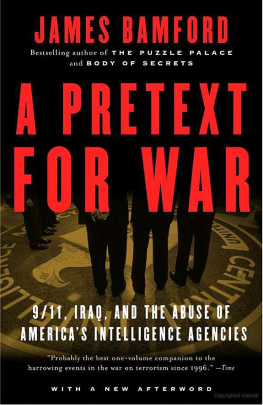The 7 July bombs 2005 seemed to have trapped us in the worst of both worlds. Many of those in charge of our security had been preaching the inevitability of an attack for months, and yet when it came they appear to have been taken by surprise.
The best way to prevent the recurrence of terrorism in our major cities is to carry out a hard-headed review of how the relevant government agencies performed in the run up to the attacksnot in private (impossible in any case because of the range of issues involved), but a vigorous public debate. Terrorists are ruthless and we must be ruthless in examining our national performance if we are to make it harder for them to strike.
Experiencing and analysing (often on the hoof) the events of 7 July and later 21 July, I experienced anger and humiliation that such low-level gangs had managed to outwit our security and intelligence services. When starting this book I thought I might find an answer in how we structured our security system or collected our intelligence. My targets would be institutions. Fix this or that part of the system: most notably MI5s Joint Terrorism Analysis Centrewhich analyses all intelligence relating to international terrorism, at home and overseas and produces assessments of threats and other terrorist-related subjectswhose reduction of the threat state just five weeks before 7 July helped take our eye off the ball.
The system does need fixing, but my real targets have turned out to be ideas, mindsets and ways of looking at things, which appear to permeate not only our intelligence and security apparatus but also our national life. And which make it easier for terrorists to exist unhindered in our midst and more difficult for the police and security services to do their job. These ideas may in part be imposed from above, but generally are so dangerous not because anyone has to subscribe to them but because many people donaturally.
Simply put, we have a bad and confused attitude to terrorism. If we do not make immediate efforts to level the playing field on which terrorists have to operatethe next bomb plots will be as easy to carry out as the last.
Not since the 500lbs bombs slammed into the RFA Sir Galahad during the Falklands War had I been so close to death on a large scale. I was two hundred and fifty yards from the Tavistock Square bomb and a few hundred feet from Russell Square tube station.
We had known something was wrong straight away when the television reported power surges on the tube across London. It was not good news. Power surges sounded suspiciously like a codename for a serious emergency on the tube line. I was uneasy to say the least. Then some minutes later we heard a detonation muffled but distinct.
I had certainly been bombed beforeby the Argentine Naval Air force in their daring attacks on the landing ships at Bluff Cove in 1982and I had heard bombs going off in Belfast in the mid 1980s. This bomb was nearby, but there was no concussion or shock wave and no windows brokenso it was small. It was a Belfast-type bomb rather than anything more dramatic. Small and possibly very nasty, but not on a grand scale. As we were certain it was a bomb, the power surges were probably bombs too.
I cant say that I was ever especially frightened in the Falklands, even when the bombs were raining down. But that was different. I was young and a professional soldier, and when a second wave of enemy planes came in later that day we were able to shoot back. Perhaps not to much effect, but it was good for the soul. On 7 July 2005, I was a civilian with a family to look afterand all one could do was wait for what else might lie in store.
All this was happening quite quickly. Two uncomfortable thoughts lodged in my mind. From the information available it looked as though London was under attack from a series of comparatively small bombs mainly on the tubebut was the series complete after the bus bomb in Tavistock Square? Or worse, was the series of small bombs just a prelude to a spectacular of some sort?
A year before I had taken part in a BBC Panorama programme in which a group of experts under the former Defence Secretary Michael Portillo tried to grapple with the effects of a terrorist attack on London. The communications expert was Lance Price who has recently published a book on his time in Downing Street as Alastair Campbells number two. I played the part of the cabinet office intelligence briefer, a task I had performed for real from 19992002.
We were organised as COBRA, the governments most senior crisis management committee. The atmospheric acronym (much loved by the producers of Spooks and other spy-related dramas) stands for Cabinet Office Briefing Room A, the ultra-high tech underground command and communications centre beneath the Cabinet Officeshown off to President Putin on his recent visit to Downing Street. It is where our national response to an emergency or crisis is co-ordinated. A senior official or middle-ranking government minister is usually in the chair for more routine emergencies, with all the relevant departments and agencies represented as required, including the armed forces. In a serious crisis COBRA is chaired by the Foreign or Home Secretary and sometimes by the prime minister, as on 9/12 and indeed 7 July and 8 July. It is a very effective and professional way to make quick decisions in a crisis and a credit to both our political leaders and our civil servicewho practise the procedures regularly.
The BBCs mock-up version was very much like the real thing. But, chillingly , in the scenario we played out a series of suicide tube bombs were just the prelude to a suicide detonation of a fully-laden chlorine tanker on Bishopsgate. In the exercise we were just about able to handle the tube bombs, but the chlorine tanker caused mass casualties and we were effectively overwhelmed.
Was something like this about to happen for real? I was like most Londoners that day afraidpartly of what had happened, but partly also of what more might happen during the day.
The mobile telephone network went down almost immediately, but I got through to home on the landline. Used to giving orders in the armyit had been a relief to return to a more negotiated life-styleI was giving orders at this stage. Get everyone back home and then stay there. There must have been many calls like that on the day.
Luckily within minutes I knew where all the members of my family were. None of them travelled on the tubeI had long felt it was too dangerous, mainly because of the terrorist threat. The thought of frightened and bewildered children trapped underground had always haunted me. It was one of the minor blessings of both 9/11 (and 7 July it would turn out) that no children were killed. Natural claustrophobia reinforced by my experiences in the Falklands meant that I rarely used the tube myself preferring a longer commute on the bus.
Everyone had been expecting some kind of attack on Londonby Islamists. I had preached long and hard whenever I got the opportunity on television and in occasional articles in the press against the idea that terrorist attacks were inevitablea corrosive doctrine that aggrandises terrorists and stokes fear and passivity into their intended victims.
I felt strongly (and still do) that we can so order our affairs to make terrorism of any kind very, very difficult to carry offcertainly much more difficult than on 7 July. But anyone with any knowledge of Islamist terrorism or Londons vulnerabilities knew that someone was likely to have a crack at us at some point.
The telephone rang with a request to come to the Millbank television studios. I had been commenting for some time on the twin subjects of intelligence and terrorismnews and occasionally sustained analysis. There had been considerable spikes activity during the Hutton and later the Butler Inquiries on the intelligence role in the Iraq War.

